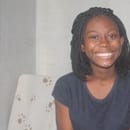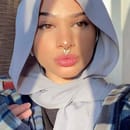I was born in Canada to two West African parents and grew up in both Africa and Canada. I relate to both cultures, but the dynamic between the two makes it difficult for me to relate to people. Because my family mostly follows a traditional African way of life, I have expectations that do not sync as well with who I am as a 19-year-old African Canadian woman. I recently listened to the audiobook version of Why We Should All Be Feminist by Chimamanda Ngozi Adichie and related so much to some things she said and made me think about the expectations my family or African acquaintances had for me, what they represented for me someone who grew up with both African and western culture and how I am seen by them.
One of the things that I notice a lot is that I’m judged based on my interests and disinterests, and how people prejudicially believe I should act. When I was younger I was a big fan of One Direction (honestly, I still am) but my family use to make fun of me for liking them – my uncle used to call them “White Direction”, because all the members had light skin and for him it was weird that I, a black African girl, was fan of 5 “white” boys. Additionally, I am not the biggest fan of African Pop music and feel ashamed saying this to other people because they cannot understand how I don’t like a type of music that comes from the same place as I do. It makes it increasingly difficult to freely talk about the things I like, whether it’s K-pop, One Direction or Shawn Mendes. Something I heard a lot, from my family, is that I do not live in the real world. But I know that having interest in things people would not expect me to like is okay because that is how you change the world.
Another broad expectation is that I am expected to come back to Africa when I am done with university, for some of my family it is a certainty that they will go back, but in my case, I want to travel the world and find a place that really fits me. Personally, I want to help my country and at the same time live my own life. When I told my family that I wanted to study Journalism, their first reaction was “Are you sure? How are you going to find a job when you come back?” For me, one idea that I always had was that I would do my best to help my country no matter what job I have, but for now, my goal is not to move back to Africa permanently.
As well, I am pescatarian (someone who does not eat meat but seafood), and the thing everyone asks me upon learning that is “What are you going to do if your husband eats meat?” “How are you going to cook for your husband?” Those two questions are an illustration of what is perceived by a lot of Africans as the role of the woman in a household: to cook, amongst other domestic necessities. I remember my nanny often told me I need to learn to cook to be able to do so for my significant other once I’m married. For me, cooking should be something I learn to do for myself, not just for someone else. Moreover, if and once I get married, I am not going to do all the cooking alone. Addressing this topic is very sensitive because it’s what, as a woman, I am expected to do.
Considering marriage, I am expected to marry and have children – this is what is expected of nearly every woman no matter where she is from. I remember last year I was talking with my step mother’s sister and she asked me about my future children, and I said that I do not want children. My dad who was sitting in front of us asked me if I was crazy and added that if he or my mother thought like that I would not exist. It is hard to deal with this type of criticism, especially when it comes from your parents, but I think it’s always important to do what you think is best for you.
I am proud of my African heritage, but most of the time the expectations that come with it don’t seem to match with who I am. I like to think that I am a mix of cultures – in French, we say, “enfant du monde” (child of the world). My family has a hard time understanding and accepting who I am, and I have a hard time accepting who they would like me to be. But as I am getting older, I realized that if I really want to be happy, I have to be who I want to be, a strong woman who represents both Canada and Africa as one.



